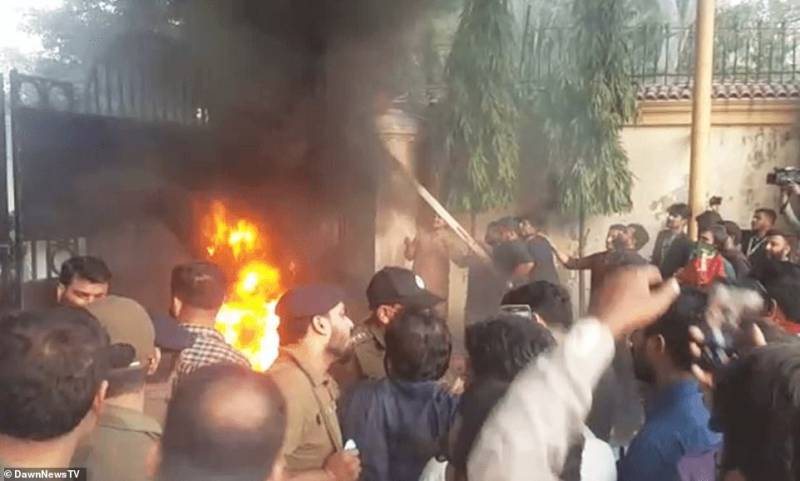
After the attempt on former prime minister Imran Khan’s life in Wazirabad on Thursday 3 November, Khan addressed his support base through a live video broadcast on Friday evening. In his long speech, he blamed prime minister Shehbaz Sharif, interior minister Rana Sanaullah, and Major General Faisal – widely presumed to be Faisal Naseer, director general counterintelligence of ISI – for orchestrating the assassination attempt on him.
Imran Khan stated that he knew in advance of a “conspiracy” to have him killed in a “Salmaan Taseer type murder”, referring to the 2011 assassination of the-then Punjab governor on overhyped allegations of blasphemy. Khan added that he will return to the streets as soon as he recovers, and urged his supporters to protest till the resignation of the three officials he had identified.
After Khan’s live broadcast, PTI supporters came out on the streets in main urban areas. Modest crowds were reported in Lahore, where they marched onto the cantonment area of the city. Security officials hoping to prevent a protest outside the Lahore corps commander’s house – as had happened in Peshawar on Thursday evening – apparently decided on a show of overwhelming force.
'Heavy presence' of police, paramilitary forces and vehicles was reported at the Sherpao Bridge entrance to Lahore cantonment by 8pm local time. An armored personnel carrier stationed on Abid Majeed road was widely misrepresented on social media as a “tank” having been “turned on the people of Pakistan instead of India”.
Despite Imran Khan’s clarifications and qualifications, it is crystal clear that the PTI loyalists have intensified their attacks on the military especially the ISI. In particular, the latter's second-in-command is being targeted. The “imported government” of “thieves” is another favorite target of Khan and his supporters.
For Khan, alleged culpability in the assassination attempt on him is sufficient reason to now start targeting the military leadership - or the generals he doesn't like - more openly. Many observers see this as Khan’s latest attempt to pressure Pakistan’s powerful military establishment to acquiesce to his demands for early general elections and the appointment of the next army chief.
Shifting his focus from General Bajwa to a junior general, while social media cacophony constantly berates the entire top brass as well as the military as an institution, allows Khan to prolong his relevance while keeping his support base riled up and energized for whenever the next elections happen.
But if the PTI protests spiral out of control, or if they lead to a direct confrontation between angry vengeful protesters and military personnel, then the establishment might be forced to prevent a contagion of the chaos. Any disruptions in internet services and digital communications across Pakistan will be closely monitored and immediately commented on, without verification or validation, by the plethora of self-styled experts on social media.
Ultimately, it depends on the nerve of the establishment, and the grit of the incumbent PDM coalition government, as to how long they can hold off the sustained pressure and momentum of Imran Khan’s increasingly unpredictable popular revolt.
The next three weeks are of crucial importance as the key decision of appointing the next army chief will be taken by the prime minister. Imran Khan's agitational brand of politics is directly linked to this decision making process. It is unclear how far he will succeed in influencing the top commanders and whether they are in a mood to placate him.

